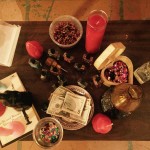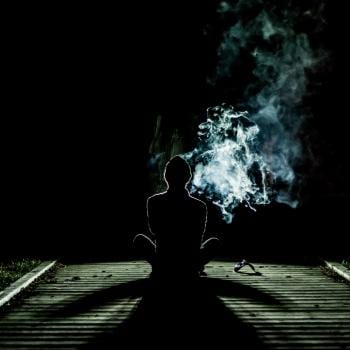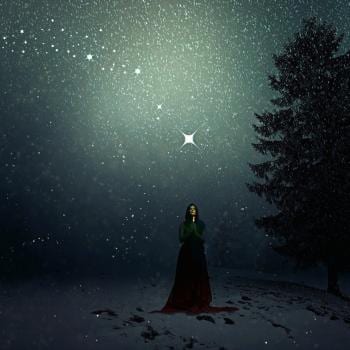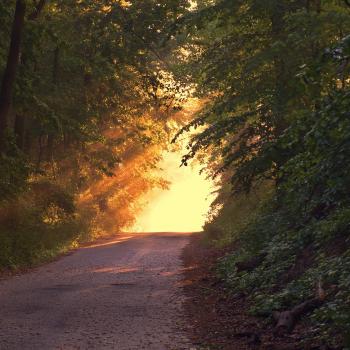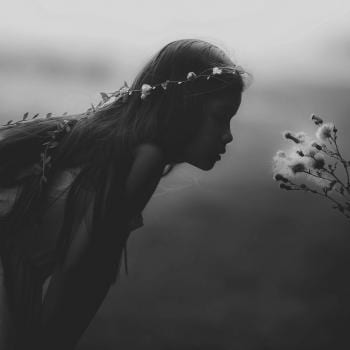I can’t remember a Christmas without Charles Dickens’ A Christmas Carol. I’ve read the book countless times, performed in plays, and watched every film version out there. By the way, in case you’re wondering, The Muppet’s Christmas Carol is my favourite version ever. One thing about the story bothers me though. The ghosts of Christmas Past, Present, and Yet to Come aren’t ghosts at all. In fact, they might be gods.
Every time I see A Christmas Carol, I think to myself “Ya know, those could be gods.” Just to be clear, it’s okay if they are ghosts. It’s okay if they aren’t gods. It’s a fictional story written in the 19th century about a man faced with the truth of his life, and ultimately makes a change for the better. I don’t need the ghosts to be gods, I’m just spitballin’ here.
There’s Only One Ghost
Charles Dickens famously wrote “Marley was dead: To begin with. There’s no doubt whatever about that. The register of his burial was signed by the clergyman, the clerk, the undertaker, and the chief mourner.” Marley appears to Ebeneezer Scrooge, clanking his chains and warning Scrooge about his impending fate if he doesn’t change his ways. Clearly Marley is a ghost. One might say that Marley is a stereotypical ghost. Marley knows he’s a ghost too. He knows he’s trapped on the earthly plane, neither able to leave this life or move on to the next (or sweet oblivion, or heaven, or whatever you think is next), and he haunts Ebeneezer, which is a pretty ghostly activity.
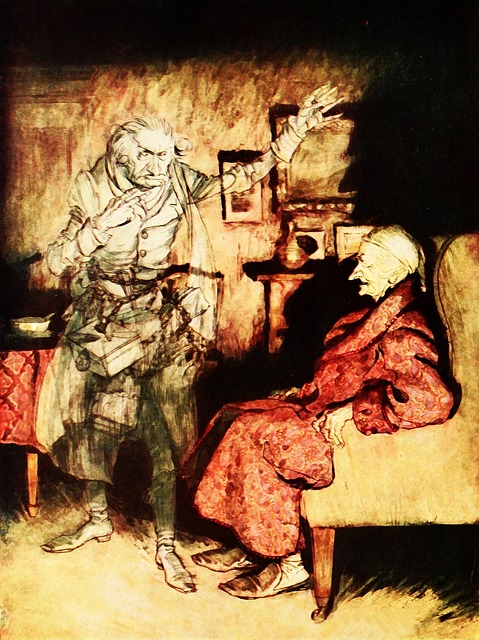
A Ghost Or A God?
I’m no expert on ghosts, but it seems pretty clear to me that ghosts are humans that have recently shuffled off their mortal coil and joined the choir invisible. If they hang about here it’s either to warn us, haunt us, or help us make pottery. There’s still a feeling of mortality or impermanence to ghosts. I could imagine that once they’ve imparted whatever message they have for us, or dealt with the issues that keep them returning to this world, they’ll move on.
Gods seem to be an entirely different thing altogether. While the true nature of the gods remains a mystery, gods have an air of permanency or immortality about them. The gods go on and on forever, until that fateful Tuesday afternoon, just after tea time, known as Ragnarok. For folks that are non-deist, you might say that gods represent universally recognizable archetypal facets of humanity that persist throughout time and culture, rendering them “immortal”. Whatever your definition is of the gods, the characters in A Christmas Carol seem closer to gods than ghosts.
The Ghost (or god) of Christmas Past
Scrooge’s first visitor is the Spirit of Christmas Past. Dickens describes the ghost as “a strange figure – like a child: yet not so like a child as like an old man, viewed trough some supernatural medium which gave him the appearance of having receded from view, and being diminished to a child’s proportions.” As we know from the story, the ghost takes Ebeneezer on a wild ride through his childhood and recent past events, and begins softening the old skinflint up.
If this spirit were a deity, which one might they be? The Greek Clotho, the spinner of life, one of the three Moirai springs to mind. Clotho is describe as spinning the the thread of one’s life. Surely a deity of “what was” could take Scrooge on a little trip down memory lane. Perhaps Scrooge runs into Eleos, a Greek goddess of mercy and compassion. It seems that the Spirit of Christmas Past is on a mission to save old Scrooge and showing him his past is an act of mercy, albeit a painful one.
I’ve always found something particularly melancholy about the Spirit of Christmas Past. Regret, a pining for what was and cannot be again, perhaps innocence lost, viewing a lifetime with fondness, detached from the moment. Who is that god?
The Ghost (or god) of Christmas Present
“Come in and know me better man!” exclaims this giant of a ghost. Scrooge moves from his bed chamber into an adjoining room only to find it covered in seasonal greenery, turkeys, geese, pigs, chestnuts, pears, oranges, cakes, and, steaming bowls of bunch. Bacchus, right? The ghost of Christmas Present reminds me of classic sculptures and paintings of Bacchus. He’s bearded, regal, a little doughy around the mid-section from an extra mince pie or two.
Although there’s virtually no lore about Cernunnos, I could imagine Cernunnos here too. A Lord of the Forest type, setting up a great feast with food, traded throughout the known world, beasts from every part of the woods. Cernunnos seems to me to be the type of god that would embrace the moment, what’s right in front of us now, the birthings and dyings and struggles of this life.
If I were asked which character I’d like to most emulate in this tale, it would be the Spirit of Christmas Present.
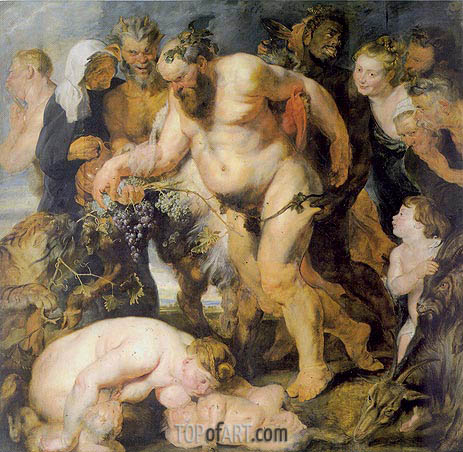
The Ghost (or god) of Christmas Yet To Come
Frank Cross gets into the elevator and meets the Grim Reaper…Wait, that’s from Scrooged…but the story point is the same. The Spirit of Christmas Yet to Come, is as silent as the grave maybe they are the spirit of the grave itself. In the original version, Scrooge says “I fear you more than any spectre I have seen. But I know your purpose is to do me good.” I think Charles Dickens cast this Spirit as an extremely effective agent in a “scared straight” story.
As far as gods are concerned, there are so many right? Lord Yama from Hinduism and/or Buddhism presides over death. Gwynn ap Nudd or Arawn from Welsh lore, come for the dying. Thanatos from Greek myth is the indiscriminate taker of life. There are gods of death in every culture because, well, it’s something we all face at some point. There’s a passage in the text that says “The phantom spread it’s dark robe before him for a moment, like a wing.” Maybe there are shades of the Morrigan at work. That’s a terrifying thought.
But this Spirit is more than just Death. There’s an aspect of compassion here too. The Spirit doesn’t just show Scrooge the possible pathways to his death, but the consequences of his way of life. And Scrooge’s life choices impact others too. The Roman god Janus seems like an appropriate parallel to draw here. Janus was the Roman god of beginnings and endings, the past and the future, and time. Once could posit that Janus visited Ebeneezer to show him what was in store for him because Janus could view the past and the possible futures.
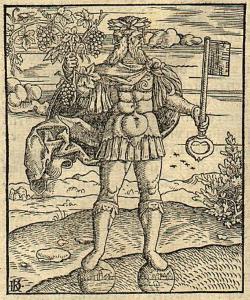
The Ghost (or god) of The Human Capacity for Change
Dickens’ whole story is about the human ability to change and live a life devoted to others. is there a god or goddess for this, maybe? But perhaps this is the realm where the gods aren’t required to participate. Caring for our fellow humans is, after all, a human endeavor.
And while I do not personally subscribe to the Christ part of Christmas, I do rather like what Ebeneezer’s nephew has to say on the matter “the only time I know of, in the long calendar of the year, when men and women seem by one consent to open their shut-up hearts freely, and to think of people below them as if they really were fellow-passengers to the grave, and not another race of creatures bound on other journeys. And therefore, uncle, though it has never put a scrap of gold or silver in my pocket, I believe that it has done me good, and will do me good; and I say, God bless it!”
Merry all the things to you and yours!

